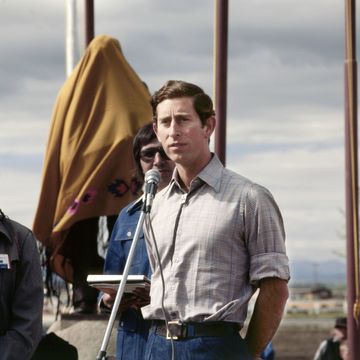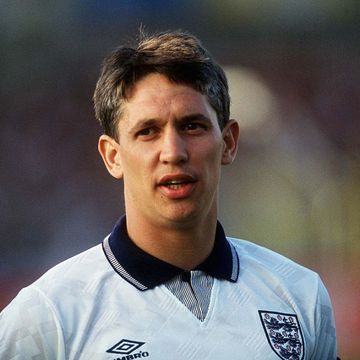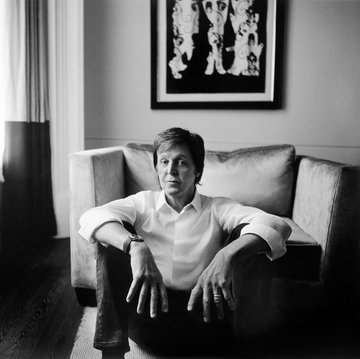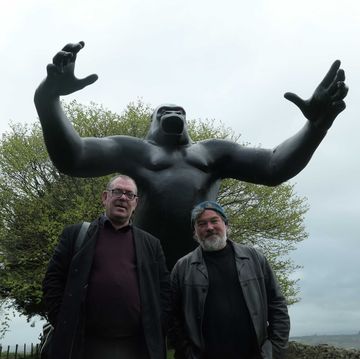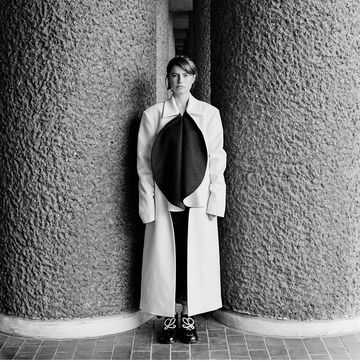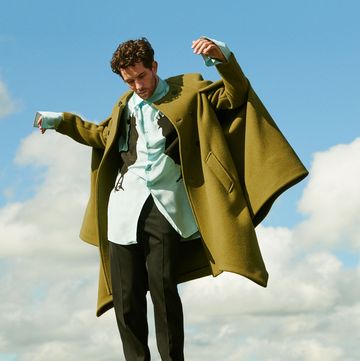Dear daniel day-lewis,
Since I know what you are not doing now, it’s natural that I wonder what you are doing. And in those thoughts maybe I understand you better? I am not going to nag you, or reproach you. Let’s admit it, you did the right and brilliant thing, as you have done so often. It has been lovely to see you do and say things no one could have foreseen, and do them with a grace that made us calm and eager for more. This sustained Daniel Plainview (There Will Be Blood), that terrible, serene man. It also added, “And some sausages,” at the end of a breakfast order so when the shy but knowing waitress nodded we knew a love story was in prospect to tame your worst behaviour. Not the least of it was that she, Alma, or Vicky Krieps, in Phantom Thread, had rhythm and affinity with you. Good acting washes off on fellow players. It is like being decent in life.
So, you’ll do no more of this, you say? That’s understandable. Significant numbers did not see how Phantom Thread is a masterpiece and did not consider your role, Reynolds Woodcock, the most beguiling, infuriating and habit-forming person on screen since Cary Grant in His Girl Friday (1940), so you have a right to despair of us. Actors eat so much shit trying to be liked that they can lose their stomach. Playing “difficult” people whose difficulty makes them alone is very hard. So saying “enough” and walking out on us is iron in your soul.
The world is open for you now. You could explore Amazonia or Ulan Bator without being mobbed or asked to pose for selfies, trusting that people will forget what you look like. You could be like an extra, observing the charms of Annamoe, County Wicklow (I think you have a home there): I can imagine you strolling through its rain and pastures for a couple of decades — take care not to fall into the mill stream, a mishap that befell Laurence Sterne there as a child around 1721.
You will have time to fashion useful and elegant pieces of woodwork, and you can indulge the possibility that you were cut out by your nature and providence to be a carpenter. You have children, of course, people to “be with”, even if they are in those years where they cannot restrain a good-natured weariness, not to mention boredom, with you. Your mother, Jill Balcon, was an actress and your grandfather, Sir Michael Balcon, was an impresario of actors — among many other things, he produced Kind Hearts and Coronets (1949). So you will know how the children of actors can nurse some embers of resentment at the way Dad was absorbed in Christy Brown or Abraham Lincoln when they wanted him to watch them. You belonged to so many strangers, and the kids were happy for you. They were an audience, too. If that situation becomes vexed or painful from time to time, then now you can go off alone to your team Millwall’s every home match and even some of the away games.
I know, those Lions may not make it into the Premier League next year, but perhaps it’s better they don’t. Shouldn’t they stay just Millwall? Their modest, disgruntled football status would only be blown up by having to act top flight. They may be better off playing Bolton or Brentford than Barcelona. I realise this has probably put me in the bad books of Millwall fans, and you know what a volatile bunch they can be. See what you’re getting me into? But we always want actors to take us into some pretending.
This hardly scratches the surface of what you will be able to do without official acting to take up your time. You could get into embroidery (I hear Phantom Thread alerted you to sewing); you could read The Life and Opinions of Tristram Shandy, written by Sterne — that brief inhabitant of Annamoe. But if Annamoe became too touristy (because you were there perhaps?), you might seek out the quieter reaches of County Sligo (about 50 inches of rain a year and an average temperature nudging 9.5°C) or even linger on the Dingle Peninsula during one of its overcasts. That experience (waiting on weather for Ryan’s Daughter) drove Robert Mitchum to drink, though it was said he knew the way and could have got there blindfold — which is what driving in Dingle can resemble.
I could write a whimsical book about the things you might do now you’re free. Better yet, you could write it yourself, until the lonely chore and its unobserved concentration urged some imp of acting in you again so you wondered if a small role was available, like carrying a spear in an amateur production of Julius Caesar.
I always admired the way you held things and acted with them: Bill “The Butcher” Cutting’s expertise with knives, blades and lethal edges in Gangs of New York; or Reynolds Woodcock’s relationship with cloth in Phantom Thread. Everything those men did with objects and tools foreshadowed their way with people. And Sir Daniel in your private den, you could pick up a chisel or a spoon and feel the temptation of “character” there, a prompt to start acting again. You can’t make your own breakfast without considering how to do it right and real.
Of course, this essay is a kind of artful imploring. But I smile at what I’m doing because I know as well as you do that there is no retiring, no walking off stage, or regaining a natural, unwritten, unacted self. No, you are lost; you always have been. You’re like Jack Nicholson as Jack Torrance in The Shining. He thought to get away, to take a winter at the Overlook Hotel with his family, to be a writer, to be free. But his inner load of discontent gathered in that empty mansion. He had a drink — the thing he knew he shouldn’t do — and a waiter named Grady took him aside and gave him the message (like the black spot in Treasure Island). He told him, “I’m sorry to differ with you, sir, but you are the caretaker. You've always been the caretaker.”
That’s the trick and the trap: you’re Daniel Day-Lewis. You always have been. This talk of retirement is just a professional ploy. There is no way out of your vocational commitment.
There was a time when you did walk out on the whole thing — I suspect it was where you gave up the ghost of being merely professional, and grasped the fatality in acting. It was 1989 at the National Theatre in London. You were playing Hamlet in the first production by the National’s new leader, Richard Eyre. It was a big thing: Judi Dench was Gertrude, John Castle was Claudius, Jeremy Northam was Osric, and Michael Bryant, Polonius.
And it was you. You were 32. My Left Foot had opened — that would be your first Oscar, in a role where you had gone speechless and immobile so that eye-rolling crew people had to carry you around the set because you were Christy Brown, immersed, complete, helpless and a tyrant. No one could talk to you as Daniel Day-Lewis.
You had to switch from that to Hamlet, as beautiful and graceful as yourself, and Hamlet at the root of it all is a moody Prince Charming, a wordsmith in tights who prefers not to be charming, or even the lead. Well, you had trouble working it all out. Why not? It’s a difficult part and it has to be the whole show. There was no chance of doing what you love to do, finessing your lead role into a supporting part. So, one way or another, you thought — or you said you thought — that when Hamlet saw his father’s ghost you were seeing your own father, the writer and former poet laureate Cecil Day-Lewis, who had died in 1972.
That story seems hokey to me, like a shrink’s couch scene in a play by Ernie Wise; it’s as trumped up and glib as a press release when the true psychic inquiry, or the stress of absorbing yourself in Hamlet, has to be private or unspeakable. You might have walked off that night because you couldn’t face the humiliating ordeal of trying to explain why you should walk off. You saw the trap — and I’ll bet you smiled at the end, guessing that one day hiking aimlessly in the rain in Sligo, some princely poetry would dog your footsteps as loyally as a real dog: is it a wolfhound or a black Labrador? (Casting has every canine option.) Retired actors need dogs, or empty chairs, to hear their words.
Whatever, one night 29 years ago, in the middle of Hamlet, you just walked off the stage because performing in public had become impossible. Even so, that walking off would be one of the most dramatic things you would ever do. You said it was terminal: you would never act on stage again — and you never have. It was your first retirement. There was a pause in that interrupted night and then Jeremy Northam came on in your place. Was he nervous? Was he blessed? Was he magnificent? Some answers are written in advance. He was so sudden, so unexpected — it was as if Hamlet was a new role, or alive, and not the soundtrack for all the silent recitation of his lines in the audience — I suspect you envied him and delighted in his saving of the embalmed play.
Of course, that left you poised on a brink you could never dodge. Would you come back? You have to know there is a world of theatre preying on and praying for your second act — and surely big bad Lear is being mentioned. You will have to be a great and resolute actor to resist that. But you are.
There was another reason for abandoning the stage. It was that Hamlet or Lear or nearly anything that might be worthy of Sir Daniel Day-Lewis was about as offhand as the Grand Canyon or the Louvre Museum. The apparatus and intimidation of such occasions crushes the chance of spontaneity.
You have taught us that you are as fresh an actor as Fred Astaire was a dancer. Fred did “numbers”, famous songs and carefully worked-out dances, but beneath the routines, if Astaire had to step across a room or negotiate a staircase (his name was so telling), he would as soon dance as walk. I think you had to quit the stage to get at the precedent-free originality of movie presence in roles that never existed until you embodied them — Bill Cutting, Daniel Plainview and Reynolds Woodcock, principally.
You have departed from that scheme just once. You played Lincoln, and there could hardly be a more Grand Canyon-esque challenge. I took your Oscar for granted after a few minutes of that film because the tourist sensibility of the Academy will always opt for a portentous monument instead of the intimate woodlands of Sligo.
I see many of your films over and over again — it’s like returning to a friend — but I have never wanted to revisit Lincoln after the first viewing. It’s a respectable edifice, but I flinch from the right-minded getting-the-point of Steven Spielberg. I cannot warm to a film so tidily, complacently set on proclaiming democracy and racial fairness, no matter that you were so ingenious in figuring out the odd, ratty, eccentric unexpected tics and drolleries in Abe.
You made previous Lincolns, like Walter Huston or Henry Fonda, feel like plaster figures on Mount Rushmore. You were working against the disciplined complacency and American Masters pretension of your director. Whereas with Paul Thomas Anderson (Phantom Thread), there is a chance of getting into something so natural and untidy it needs no justification. Despite his vagaries, your Abe was a Good Man, going to the Hall of Fame. But Plainview and Woodcock are as unsettling as people we’ve just met and know too little. I can’t get enough of meeting them again but Lincoln is a closed book.
So, I’m putting no more pressure on you. As it is, you are engaged with perhaps the most demanding guy you’ll ever meet, the one you never satisfy. You have entered into the inner circuit of acting, the no-escape task of playing yourself, in improv, with no text to learn, wearing your own clothes, carrying sets and decor around with you like an aroma. Without that heavy need to get it “right”; and having no duty to an author, to the box office or that stooge Oscar.
Nowadays you will have a smaller audience: just family, some acquaintances and that dog — and they won’t realise you’re playing. But you had reached the understanding some time ago: that the heart of acting is to do it so naturally, as if unobserved, in a state of being like having a light on. I don’t need to wait for your Lear or your Vanya. Would you be “stunning” in them? The answer is not in doubt.
I don’t want to make novelty a gimmick, but I had imagined you as Ruth in Harold Pinter’s The Homecoming. Would that wake us up? Some day soon, male actors will play female parts in movies. I even thought of tempting you into a new Kind Hearts and Coronets where you could be all those people Alec Guinness played and the Dennis Price character who murders them. But maybe that’s idle virtuosity when you need to feel like a novice or a usurper; not just for us, but for yourself.
So whether you are in the throng at The Den staying cheerful about Millwall, or trudging through the endless rain of Sligo, I will settle for this thought: you have been the best actor on film in our time and that has sometimes slipped over into life itself. You don’t play these parts; they take you over. Which is what you like in a physical obsession, like planing wood smooth or stitching a name inside a hem or a lapel.
I hope you will be spared Lear or the other chestnuts of old age. But if Millwall — with Russian money and luxury boxes — ever become a force capable of handling Real Madrid or Bayern Munich, you could still transfer your affections and your obscure presence to more out-of-the-way teams, to Tranmere Rovers, or even Hamilton Academical. And if Tourism Ireland thinks to lay down a pink dotted-line trail saying, “This is where Sir Daniel walked, bless his noble heart and his left foot”, rest assured there are deserts and wildernesses where you could stroll as if each step was new and unknown.
I understand, and I abide by it: retirement is a threshold to the real thing. It’s not just that acting is “important” or “riveting”, or what creates stars we fuck in our dreams, it is the ordinary human way of life, pretending to be someone.
With all good wishes,
David Thomson.



